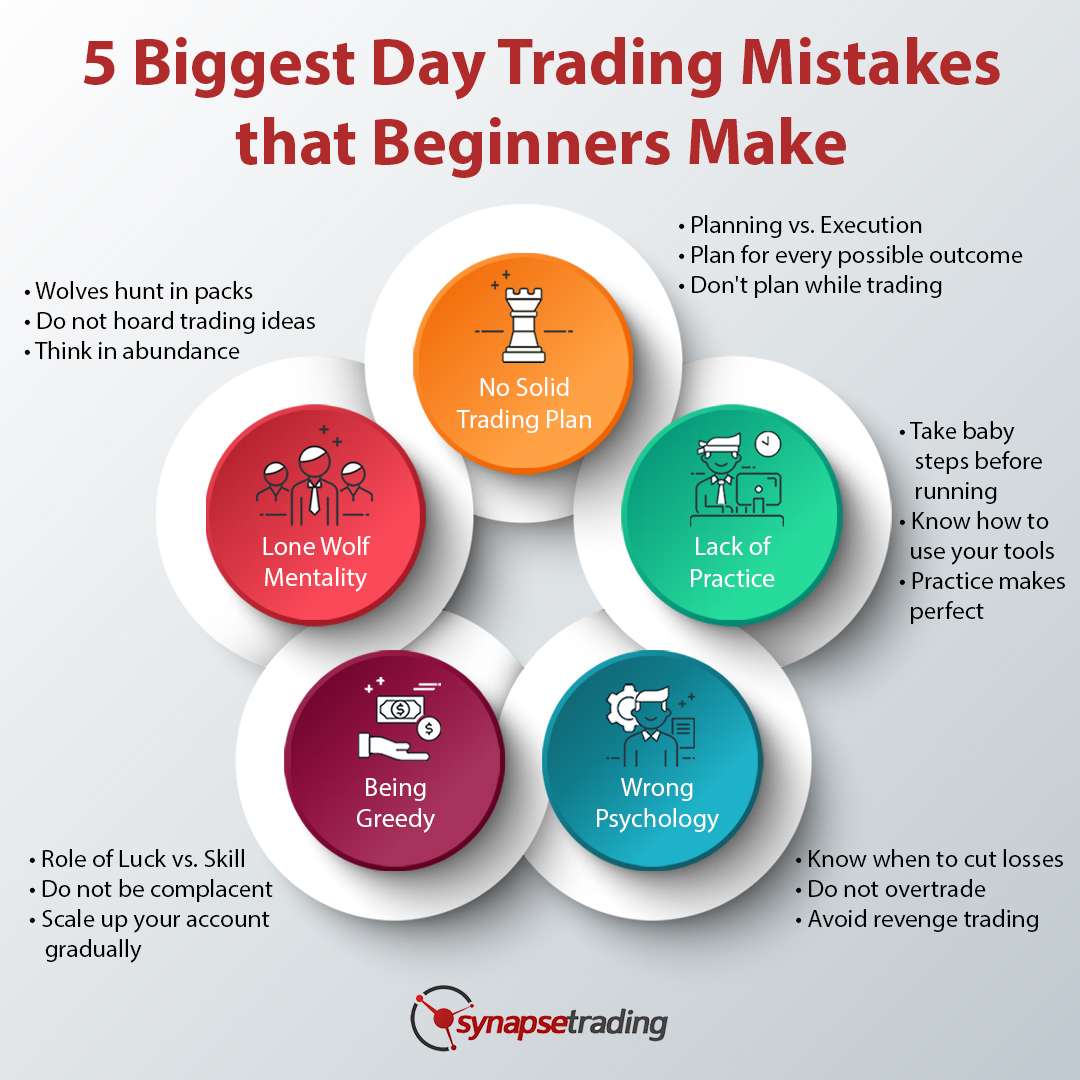Forex trading can be a great way to build wealth and gain financial independence. But, as with anything, the road to success is filled with pitfalls. As a beginner, it’s easy to fall into common traps that can hurt your chances of success. I’ve been there, and trust me, I know how easy it is to make these mistakes. Let’s explore these errors and how you can avoid them, so you don’t end up losing more than you bargained for.
For new traders, understanding the dangers is crucial. The problem is that many traders jump into Forex with excitement and a lack of preparation. They end up making costly errors that could have been avoided with a little more knowledge and awareness. So, how can you avoid these rookie mistakes?
In this article, I’ll walk you through the top 10 mistakes that beginners often make in Forex trading. By the end, you’ll have a clear understanding of how to protect your capital and increase your chances of success in this high-risk but rewarding market.
- Trading without a plan
- Overleveraging your trades
- Ignoring stop-loss orders
- Overtrading due to FOMO (Fear of Missing Out)
- Chasing losses or revenge trading
- Ignoring economic news and market events
- Not keeping a trading journal
- Following the crowd blindly
- Overconfidence and lack of patience
- Lack of risk management
By understanding these pitfalls and learning how to avoid them, you’re giving yourself the best chance to succeed in Forex trading. So let’s get started!
1. Trading Without a Plan or Strategy
One of the most common mistakes beginners make in Forex trading is diving into the market without a solid plan. I’ve seen it happen time and time again. When you trade without a clear strategy, you leave yourself vulnerable to impulsive decisions that can end badly. It’s like trying to drive a car without a map—you might end up going in circles or crashing.
A solid trading plan is the backbone of any successful trader’s approach. It should outline entry points, exit points, risk management strategies, and position sizing. Trading without these guidelines is like gambling, not investing. If you don’t know where you’re going, you’re more likely to lose your way.
Emotional Decision-Making
One of the biggest reasons beginners fail is emotional decision-making. I’ve been guilty of it myself—when the market moves fast, it’s easy to panic. You either get too greedy, trying to cash in on every move, or you get scared and close a trade too early, missing out on profits. It’s all about controlling your emotions and sticking to your plan.
How can you avoid emotional decision-making? Simple: Don’t let fear and greed guide your trades. Use stop-loss orders to keep your emotions in check and prevent yourself from making rash decisions when things go wrong.
Not Setting Clear Goals
Many traders enter the market without setting specific goals. It’s easy to get caught up in the thrill of trading, but without clear goals, you’re just wandering around aimlessly. Whether your goal is to make a certain amount of profit per month or to learn specific strategies, having clear objectives helps keep you focused and disciplined.
2. Overleveraging Your Trades
Another critical mistake is overleveraging. This is when you borrow too much money to trade, thinking you’ll make quick profits. It might work in the short term, but if things go south, it can wipe out your entire account. Leverage is a double-edged sword—it can amplify your gains, but it can also magnify your losses.
As a beginner, I recommend starting with lower leverage ratios, such as 1:10 or 1:20. This will help you manage your risk better and avoid blowing up your account on a bad trade. Remember, more leverage means more risk, and that’s something every trader needs to understand early on.
Understanding Leverage and Risk
Many beginners don’t fully understand how leverage works and the risks involved. When you use leverage, you’re essentially borrowing money from your broker to increase your position size. This can be tempting when you see small profits, but one big loss can wipe out your account in no time. Start small, and don’t risk more than you can afford to lose.
Risking Too Much on One Trade
Another mistake I’ve made in the past is putting too much money on a single trade. Sure, the potential profits can be enticing, but putting a large portion of your capital into one trade is incredibly risky. If that trade goes wrong, it can destroy your account.
To avoid this, you should limit your risk per trade to just 1-2% of your total account balance. This will ensure that no single trade can ruin your entire portfolio.
3. Ignoring Stop-Loss Orders
Many beginners make the mistake of not setting stop-loss orders or setting them too wide. I can’t stress this enough: stop-losses are your safety net in the volatile world of Forex. Without them, your losses can quickly spiral out of control.
Stop-loss orders automatically close your trade when the market moves against you, protecting your capital. By setting a stop-loss order, you’re essentially limiting your losses and ensuring that one bad trade doesn’t wreck your account.
Proper Stop-Loss Placement
Setting your stop-loss too tight can get you stopped out prematurely. On the other hand, setting it too far can expose you to greater losses. It’s important to place your stop-loss in a way that aligns with the market conditions and the timeframe of your trade. Don’t just set it arbitrarily—do your research first.
Embracing Stop-Losses as a Risk Management Tool
Stop-losses aren’t just a safety net; they’re an essential risk management tool. They help you manage your emotions and prevent impulsive decisions. The key is to use stop-losses wisely and avoid adjusting them based on emotion. Stick to your plan!
4. Overtrading and FOMO
Overtrading is another common mistake. I’ve been guilty of this—sometimes, after a winning streak, you feel like you can’t stop. Or, after a loss, you feel the urge to recover quickly. That’s where FOMO (Fear of Missing Out) comes in. But trust me, chasing every market move only leads to frustration and losses.
Overtrading can drain your capital and lead to emotional burnout. The key is patience. Wait for high-quality trade setups that align with your strategy, and don’t feel the need to trade every single market move.

Trading for the Wrong Reasons
FOMO often makes us trade for the wrong reasons. We might be tempted to jump into a trade just because everyone else is doing it, or we feel like we’re missing out. The reality is, if you’re trading for the wrong reasons, you’re setting yourself up for failure.
It’s important to trade with a clear plan and only enter trades that fit your strategy. Don’t trade because of fear or excitement—trade because the market conditions support your decision.
Knowing When to Take a Break
Sometimes, stepping away from the market is the best thing you can do. After a loss or a string of unsuccessful trades, it’s easy to become desperate. But trading in a frustrated state only leads to more mistakes. Take a break, clear your mind, and come back when you’re calm.
5. Chasing Losses or Revenge Trading
After a loss, it’s tempting to try to make up for it by increasing your trade size or taking higher risks. This is known as revenge trading, and it’s one of the quickest ways to lose even more money. I’ve seen it firsthand—after a losing streak, I wanted to make up for it by taking bigger risks, and it just backfired. The more you try to recover losses, the more you risk spiraling into a bigger hole.
The key to avoiding revenge trading is to accept losses as part of the journey. Every trader has them, but it’s how you manage those losses that makes the difference. Instead of trying to make up for a loss in one go, stick to your plan, stay patient, and focus on the bigger picture.
Maintaining a Calm Mindset
Revenge trading often occurs when you’re emotionally charged. It’s easy to feel upset after a loss and want to get back at the market. But if you can stay calm and composed, you’ll make more rational decisions and avoid falling into the trap of chasing losses.
Trading for Revenge
Trying to “get even” with the market is a surefire way to lose your cool. If you’ve lost, take the time to analyze your trades and learn from them. Don’t try to make a quick profit just to cover past mistakes. Stick to your strategy and move forward with a clear mind.
6. Ignoring Economic News and Market Events
Forex trading isn’t just about charts and technical analysis. Economic news plays a massive role in how the markets move. I can’t tell you how many times I’ve seen beginners ignore key news releases and get caught in market volatility. Whether it’s a major economic report or an unexpected political event, ignoring the news can lead to big mistakes.
The Forex market reacts strongly to global economic events, and these events can cause huge price swings. To succeed, you need to stay informed about what’s happening in the world and how it might impact your trades.
Trading During High-Volatility Events
Trading during major news events, like a central bank announcement or a geopolitical crisis, can be risky if you don’t understand the potential impact. These events often lead to high volatility, and price movements can be unpredictable. It’s best to avoid trading during these periods unless you’re prepared to handle the risks.
Incorporating News into Strategy
Rather than ignoring news, I suggest integrating it into your strategy. Follow financial news outlets, keep an eye on key reports like Non-Farm Payrolls (NFP) or GDP releases, and use economic calendars to plan your trades. The more you understand how news affects the market, the better you’ll be at positioning yourself for success.
7. Not Keeping a Trading Journal
If you’re not keeping a trading journal, you’re missing out on one of the most valuable tools for improvement. When I first started, I didn’t track my trades, and it made it difficult to identify where I was going wrong. Without a journal, it’s hard to analyze your mistakes or understand what strategies are working for you.
A trading journal helps you reflect on your trades and track your progress over time. It’s an essential tool for continuous improvement in Forex trading.
Reviewing and Learning from Trades
Your journal should include details of each trade: the entry point, exit point, reasons for entering the trade, and the outcome. By reviewing your trades regularly, you can identify patterns in your decision-making and improve your strategies for future trades.
Tracking Your Progress
Keeping a journal is also a great way to track your progress. It helps you see where you’ve improved, and it gives you a chance to celebrate your wins. It’s a simple but effective way to stay motivated and focused on your long-term goals.
8. Following the Crowd Blindly
It’s easy to get caught up in the hype when you see everyone else making big moves in the market. But blindly following the crowd without doing your own research is a recipe for disaster. I’ve fallen into this trap before, listening to tips from social media or random trading groups, and it didn’t end well.
Forex trading requires independent thinking. You need to trust your analysis, not someone else’s opinion, especially if they’re just jumping on the latest trend.
Developing Independent Analysis
Instead of relying on the crowd, focus on developing your own analysis. Learn to read charts, use indicators, and understand market trends. The more you educate yourself, the less likely you are to fall for hype or misleading advice from others.
Avoiding Social Media Hype
Social media can be a great tool for networking and learning, but it can also be full of misinformation. Avoid jumping into trades based solely on social media trends. If everyone is talking about a particular currency pair, take a step back and ask yourself whether it aligns with your strategy or if it’s just FOMO.
9. Overconfidence and Lack of Patience
After a few successful trades, it’s easy to get overconfident. You might start thinking that you have it all figured out, and that’s when mistakes happen. I’ve seen traders, including myself, lose focus after a winning streak and make trades without fully analyzing the situation.
Confidence is important, but overconfidence can lead to risky decisions. Patience, on the other hand, is key to long-term success in Forex trading. Don’t rush into trades just because you feel “lucky” or “on a roll.”
Managing Expectations
It’s important to have realistic expectations. Forex trading is not a get-rich-quick endeavor. It requires time, practice, and a well-thought-out strategy. Don’t expect instant success—focus on the process, not the outcome.
Staying Humble in Trading
Even after a few wins, it’s essential to remain humble. The market can change in an instant, and what worked for you yesterday might not work tomorrow. Stay grounded, keep learning, and always be prepared for both good and bad trades.
10. Lack of Risk Management
Without proper risk management, your trading account is at risk of being wiped out. I’ve learned this the hard way—taking big risks without a solid plan for managing losses can lead to catastrophic results. Without a clear risk management strategy, it’s easy to let losses spiral out of control.
Risk management isn’t just about stop-loss orders—it’s about understanding your exposure and controlling it. If you don’t manage risk properly, no matter how good your strategy is, you’ll eventually face significant losses.
Risk-Reward Ratio and Trade Size
One of the simplest risk management techniques is to ensure that your potential reward outweighs your potential risk. For instance, a risk-reward ratio of 1:3 means that for every dollar you risk, you stand to make three dollars in profit. Always aim for a positive risk-reward ratio before entering any trade.
Diversification and Position Sizing
Don’t put all your eggs in one basket. Diversify your trades to reduce risk. And always control your position size—don’t risk too much on a single trade. By managing your position size, you can better withstand losing streaks without destroying your account.

Forex trading is an exciting venture, but it’s filled with potential pitfalls that can derail even the most experienced traders. By understanding and avoiding these 10 common mistakes, you’ll be better equipped to handle the ups and downs of the market. Focus on risk management, patience, and a well-structured trading plan to ensure long-term success in your trading journey. Remember, trading is a marathon, not a sprint.
The road to success in Forex trading is paved with both wins and losses. However, by learning from your mistakes and consistently improving your strategies, you can turn your trading journey into a profitable and rewarding experience.
